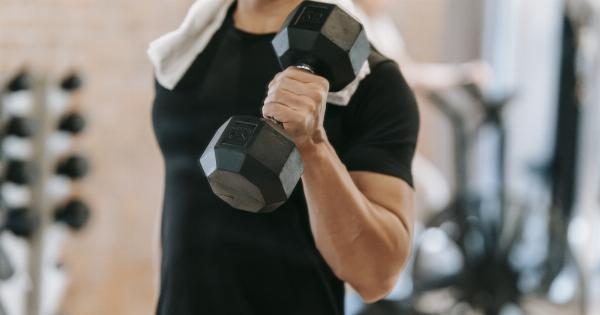After an intense workout, it’s common to experience muscle pain and soreness. This discomfort is known as delayed onset muscle soreness (DOMS) and can hinder your ability to perform daily tasks.
However, there are several strategies you can implement to alleviate post-workout muscle pain and speed up your recovery process. In this article, we will explore these methods and provide you with effective ways to relieve muscle soreness.
1. Foam Rolling
Foam rolling, also known as self-myofascial release, is a technique that involves using a foam roller to apply pressure to specific areas of your body.
By targeting these trigger points, you can break up knots and release tension in your muscles, reducing post-workout soreness. Common areas to focus on include your quadriceps, hamstrings, calves, and glutes. Spend a few minutes each day foam rolling these areas to reap the benefits.
2. Gentle Stretches
Performing gentle stretches after your workout can help alleviate muscle pain. Focus on stretching the areas you targeted during your exercise session. Hold each stretch for 15 to 30 seconds and repeat two to three times.
Some effective stretches for post-workout muscle pain include hamstring stretches, calf stretches, and chest stretches. Remember to breathe deeply and avoid bouncing or overstretching, as this can lead to further injuries.
3. Cold Therapy
Cold therapy, such as ice packs or cold baths/showers, can help reduce inflammation and alleviate muscle pain. Applying cold to the affected areas constricts blood vessels, reducing blood flow and minimizing swelling.
Use an ice pack or wrap ice cubes in a towel and apply it to the sore muscles for 15 to 20 minutes. Alternatively, taking a cold shower or bath after your workout can also provide relief.
4. Heat Therapy
Contrary to cold therapy, heat therapy can also be effective in alleviating muscle pain. Applying heat to your sore muscles increases blood flow to the area, promoting healing and easing discomfort.
You can use a heating pad, warm towel, or take a warm bath to experience the benefits of heat therapy. Remember to apply heat for 20 to 30 minutes and avoid burning yourself by using a moderate temperature.
5. Adequate Hydration
Staying hydrated is crucial for overall muscle health and recovery. When you exercise, you lose fluids through sweat, which can lead to dehydration. Dehydration can exacerbate muscle pain and prolong recovery time.
Make sure to drink plenty of water before, during, and after your workout to replenish lost fluids and help your muscles recover effectively.
6. Proper Nutrition
Eating a balanced diet rich in essential nutrients is vital for reducing muscle pain and promoting recovery. Ensure your meals include an adequate amount of protein, which aids in muscle repair and growth.
Additionally, consuming foods high in antioxidants, such as fruits and vegetables, can help reduce inflammation and relieve muscle soreness. Consider incorporating foods like leafy greens, lean meats, nuts, and seeds into your post-workout meals.
7. Active Recovery
Engaging in active recovery activities on your rest days can enhance blood flow to your muscles and alleviate post-workout muscle pain. These activities should be low-intensity and focus on gentle movement.
Some examples include going for a walk, swimming, or practicing yoga. Active recovery not only helps reduce muscle soreness but also prevents stiffness and improves your overall flexibility.
8. Get Sufficient Sleep
Sleep is essential for muscle repair and recovery. During sleep, your body releases growth hormones and repairs damaged tissues. Aim to get 7 to 9 hours of quality sleep each night to maximize your muscle recovery.
Establishing a consistent sleep schedule and creating a conducive sleep environment can greatly contribute to reducing post-workout muscle pain.
9. Over-the-Counter Pain Relievers
If you’re experiencing severe muscle pain that persists despite trying various remedies, you may consider taking over-the-counter pain relievers such as ibuprofen or acetaminophen. These medications can help alleviate pain and reduce inflammation.
However, it’s important to use them sparingly and consult with a healthcare professional if your muscle pain persists or worsens.
10. Gradual Progression
Preventing post-workout muscle pain starts with a gradual progression in your exercise routine. Avoid pushing yourself too hard too quickly, as this can lead to muscle strain and excessive soreness.
Gradually increase the intensity and duration of your workouts over time to allow your muscles to adapt and minimize post-workout discomfort.





























